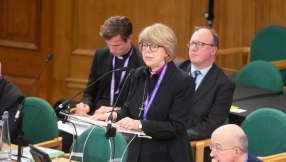Kazakhstan Constitutional Council rejects restrictive draft law
Wednesday’s decision by the Constitutional Council was made in part on the basis of constitutional provisions banning discrimination on the grounds of religion.
The announcement follows lobbying from CSW and other human rights organisations against the proposed draft bill.
According to the head of the Kazakhstan International Bureau for Human Rights and Rule of Law, the judgment also implies that the current Religion Law is unconstitutional. CSW said religious communities in Kazakhstan already face regular violations of their right to freedom of religion and belief.
The President now has one month to respond to the decision but is likely to face international pressure, particularly from other states within the Organisation for Security and Co-operation in Europe (OSCE), which Kazakhstan is due to chair in 2010.
Harsh and restrictive measures within the draft legislation included a requirement for permission from both parents for children to attend religious events, while increasing the punishment for individuals found guilty of conducting charitable work, importing, publishing or distributing religious literature, or building or opening places of worship in violation of "demands established in law". Large fines were expected to be imposed upon members of unregistered churches.
Similar legislation passed unanimously through Kyrgyzstan’s Parliament on 6 November 2008. However the decision in Kazakhstan may yet impact the progress through Parliament in Tajikistan of new legislation on religious freedom which threatens loss of legal status for many mosques and churches in 2009 if passed. It comes despite commitments made by Tajikistan, Kazakhstan and other Central Asian states such as Kyrgyzstan, Turkmenistan and Uzbekistan as members of the OSCE. Officials across the region continue to place routine and unlawful restrictions on citizen’s basic freedoms of association, assembly and religion through church raids and media intolerance.
Alexa Papadouris, CSW’s Advocacy Director, said the unconstitutionality of the draft law "appears to be symptomatic of a lack of respect for the rule of law in Kazakhstan".
She also voiced concern over the extent to which religious freedom was being respected by Kazakhstan’s officials.
"Despite this, we hope the Constitutional Council’s decision will also lead to a review of the constitutionality of the current restrictive legislation, and we trust that this decision will send a message to other Central Asian states who are committed to upholding international standards on human rights through their membership of the OSCE and their ratification of the International Covenant on Civil and Political Rights," she said.
"It is imperative that the international community now call on the authorities in Kazakhstan, Kyrgyzstan, Tajikistan, Turkmenistan and Uzbekistan to ensure their treatment of religious communities accords with international standards of freedom of religion and belief."













